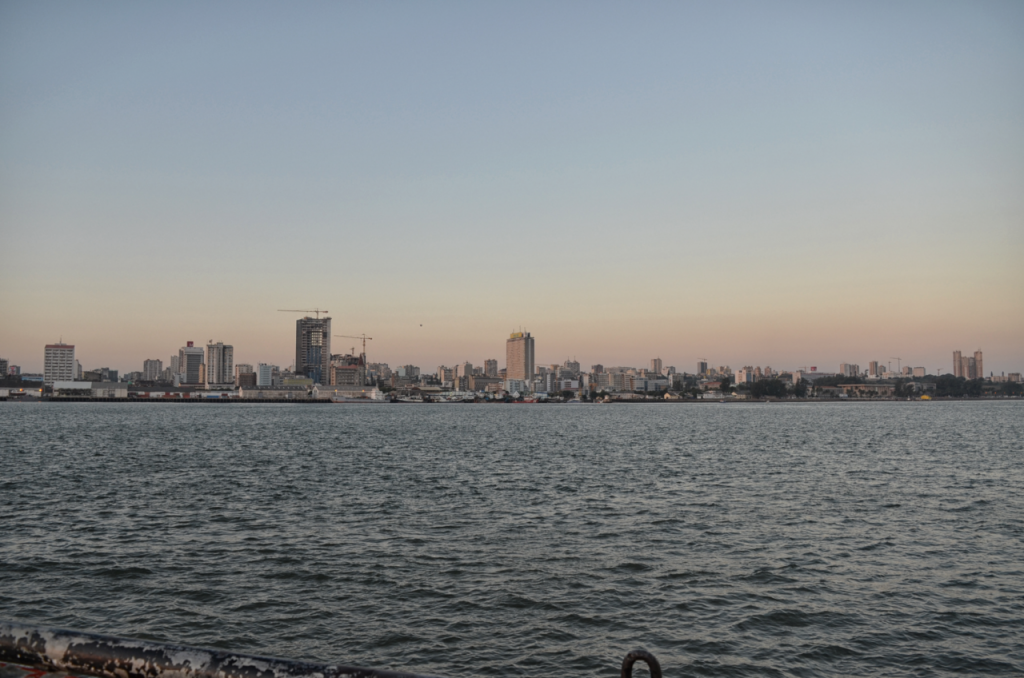If you do business globally as a multinational company, employee or consultant, you might wish to follow the convoluted U.S. legal case against Lebanese ship salesman Jean Boustani.
Boustani was the chief sales executive of a global shipbuilding company, Privinvest, based in the Middle East with operating shipyards in France, Germany and elsewhere. Privinvest has built vessels and systems for about 40 navies to protect their waters.
In 2012, when the Mozambique government launched a series of maritime projects to build a tuna fishing fleet, shipyard facilities and a coastal navy to protect its waters, Boustani helped Privinvest win the contracts.
But after Privinvest delivered the vessels and systems, Mozambique abandoned the projects, defaulted on $2 billion in debt financing and was accused of hiding most of the debt from the International Monetary Fund, which suspended its assistance to the impoverished nation. The Mozambique “tuna bond scandal” is, like sloppily managed fishing nets, a tangled mess.
As authorities cast about for culprits, Boustani sits in a New York jail awaiting trial on charges of conspiracy to commit securities fraud, wire fraud and money laundering. In January, U.S. agents seized Boustani at New York’s John F. Kennedy airport. A U.S. judge rejected Boustani’s request for a $20 million bail and house arrest, declaring him a flight risk because he was not a U.S. citizen or resident and had no ties in the U.S.
That’s exactly the problem with the U.S. case against Boustani. He’s not an American, he didn’t work for an American company and he didn’t do any business in America. Any harm he caused to Americans is unspecified. These facts and others have given rise to criticism of the case in the U.S., including a commentary published in July in The Washington Times.
The U.S. case against Boustani tries to prove he was the “mastermind” of a deal corrupted by bribes and kickbacks that harmed U.S. investors through the defaulted Mozambique loans. Boustani denies the charges and says he had nothing to do with the creation or sale of the Mozambique debt, which was handled by Europe investment banks. Nor did Boustani receive any money from the Mozambique debt sales, he says. The U.S. case also curiously fails to name any specific debt security or investor Boustani allegedly harmed.
Boustani’s case raises knotty questions about America’s role as world policeman in commercial matters. Can the U.S. claim the power to seize and jail non-U.S. business executives and try them under U.S. business laws, especially if their alleged crimes didn’t happen on U.S. soil or harm U.S. citizens or entities? Can non-Americans like Boustani be held to U.S. laws? If so, does that invite other nations to retaliate?
In Boustani’s case, his defense points out that he’s a Lebanese citizen who worked for a Middle Eastern company while Mozambique government-sponsored companies made alleged false statements to obtain loans from European investment banks. In addition, the defense adds, the banks sold the debt securities to buyers across the world in a series of foreign transactions. As Boustani asks, “What does this case have to do with the United States?”
The question goes well beyond Boustani’s plight and into the U.S. role of involving itself in crimes beyond its borders.
U.S. President Donald J. Trump has declared that America is not the world’s policeman. The U.S. court system is also challenging America’s right to police global business beyond its shores.
A few years ago, British citizen Lawrence Hoskins, who worked in France for the United Kingdom subsidiary of the Paris-headquartered global power and transportation company Alstom, was convicted of being part of a scheme to bribe Indonesian officials to win a $118 million power contract. U.S. authorities claimed jurisdiction in the matter because Alstom’s U.S. subsidiary allegedly was involved in retaining consultants that arranged the bribes.
Hoskins never worked for Alstom’s U.S. subsidiary in any direct capacity and never traveled to the United States for the deal. But prosecutors said Hoskins communicated with the accused consultants and one had a bank account in the U.S. state of Maryland. This, U.S. authorities claimed, constituted a crime in America.
A U.S. appeals court rejected this view. That’s a helpful clarification for anyone—in Africa and beyond—who is involved in global commerce. But Lawrence Hoskins’s exoneration doesn’t free Jean Boustani from his U.S. charges and New York jail. Not yet.
The U.S. and every other nation understandably demand the right to capture and try global terrorists, drug traffickers and other criminals that threaten their people. But if America can charge a Lebanese ship salesman working for a Middle Eastern company over a transaction in Mozambique financed by European banks alleging tenuous harm to Americans, then is anyone involved in international commerce safe from U.S. policing? The Boustani case is worth watching to find out.
Gil Kapen is a Special Advisor at the American Jewish International Relations Institute and a former staffer on the House Subcommittee on Africa.

